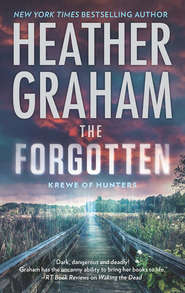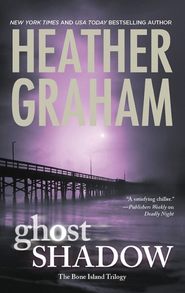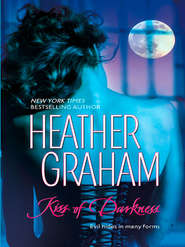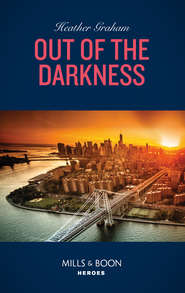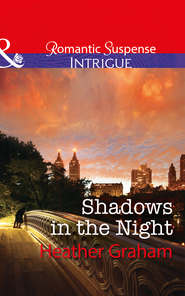По всем вопросам обращайтесь на: info@litportal.ru
(©) 2003-2024.
✖
Dark Rites
Настройки чтения
Размер шрифта
Высота строк
Поля
He tried to rise from the gurney.
It was only then that he realized that he was shackled to it. One huge chain on his left ankle. Another on his right arm.
His heart raced; he couldn’t breathe. It seemed that his vision blurred before him and the world started to go black.
What the hell? What in God’s name had happened to him? Kidnapped, taken, was he going to be killed? Worse—tortured and killed.
The fear was nearly overwhelming!
He fought the sensation. Hard! He didn’t have any kind of training for this type of thing; he hadn’t even been a Boy Scout. But he was bright, and he wanted to survive.
He was—not all that useful in such a situation!—a historian. He had to make do.
Okay, that meant that, at the least, he was pretty darned sure he knew where he was. The Mariana Institute for the Mentally Unfit, opened circa 1840, closed down when the Commonwealth of Massachusetts had approved the disincorporation of several valley towns in order to create the Quabbin, a reservoir of water for Boston, in the 1930s. The Mariana Institute remained on high ground, ground that was deeply forested, now inhabited and visited only by the wildlife that proliferated the area—bobcats, black bears, moose, red foxes, eagles, deer, weasels, coyotes and more.
It was supposed that it existed no more.
But Alex was in it!
According to official records, it—like so many other buildings—had been razed circa 1936.
But clearly it hadn’t been, and he only knew that it was still here because of an obscure reference he had recently found in a book of incredibly boring records. Reading between the lines, he realized that they’d run late with the demolition—a complaint by the man in charge chalked it up to the fact that the doctors had been trying to find new placements for the remaining patients. And no more crews had been sent out after the date that it had been recorded as demolished.
The area was called “the accidental wilderness,” because no one had realized what a reserve they would create when they flooded the towns.
He’d been so excited about what he’d discovered.
He hadn’t been able to wait to...tell Vickie!
The terrible thought filtered in: no one knew it was here. No one would know he was here!
Of course, people hiked along trails that weren’t that far away. There was a visitor center, there were wildlife refuges...
None of them near the site of the abandoned mental institute—which had just been left there as the Commonwealth of Massachusetts dealt with matters far more serious than a derelict building that most people wanted to pretend had never existed. It wasn’t anywhere near any kind of an actual large city, with no real roads left to reach it. The wretched place—known for death and mayhem—was not even up for grabs to the many entrepreneurs who loved to create Halloween horror houses or museums out of such old institutes. Massachusetts had a solid grip on the area.
How the hell had he even gotten here?
He couldn’t remember. He had just woken up and...
Found himself shackled to a table.
Think! he commanded himself. He was supposed to have a brilliant mind. He was one of the youngest professors of history at one of the finest institutes of learning in the United States. That was, of course, why he could figure out where he was.
None of this helped in the least in explaining how he had gotten chained up in a supposedly nonexistent mental hospital!
Remember! Remember where he had been, what he had been doing.
For a moment, his past eluded him. So he went back to the beginning: he’d been born in Auburn, Massachusetts. He’d grown up on State Street. He’d always been a nerd, but thank God, it was okay; time and society—and The Big Bang Theory—had made nerds acceptable. He was a hair over six foot three, but his weight was a mere hundred and eighty-five—no matter what he ate! One of the biggest, toughest football players in the school had been his best friend. He hadn’t been stuffed into school lockers or had his head shoved into the toilet. He’d been treated like some kind of guru, really.
And after high school, Harvard.
Graduation. He’d dated Allie Trent; they’d been a good pair. But Allie had died, way too young, way too smart and lovely, to have been lost so sadly to the horrors of disease. That had been a few years back now. He’d gone on a dating website and had a few okay experiences, but nothing that had touched his heart. He indulged in a moment of regret, missing Allie again. His excursions with the opposite sex since had barely awakened his libido.
Maybe he needed a wilder libido. Not something to worry about now! Focus.
So...
He worked at the college, he came home and he researched historical events and whatever else grabbed his fancy; he loved coffee shops and acoustic music and...
Then he remembered. Three weeks ago, he’d been savagely attacked right in front of his apartment. Struck so violently on the head he’d spent days in the hospital. He’d never known what had hit him. Although he’d been somewhat involved in the Undertaker case, but that situation had been solved. His friend Vickie Preston and FBI Special Agent Griffin Pryce had come to see him in the hospital; they—and the police—were still looking for the attacker or attackers, but they’d discovered nothing so far. But there had been a note left on his battered body.
Hell’s afire and Satan rules, the witches, they were real. The time has come, the rites to read, the flesh, ’twas born to heal. Yes, Satan is coming!
The cops, he knew, had chalked it all up to some gang or even cult, acting out. Especially since he wasn’t the only one attacked; a young woman on Beacon Hill had been struck and left with the same note, as had an older man—one who had barely survived!—in Brookline.
Boston had never been crime-free—not even during the days of the very harsh Puritan laws that had first ruled the Massachusetts Bay Colony.
So far—in this rash of knock-’em-out-and-leave-’em-with-a-Satanic-warning attacks—no one had died. The police did what they could, but maybe they were busier with other murders than they were with the head-knockings by a would-be Crowley-esque cult.
Vickie and her agent friend would be on it, though. He was certain!
Alex had been left hurt but alive. And once he’d healed a bit, he’d looked up the rhyme that had been left on his chest. It wasn’t even original. It had first been used in the 1600s by a man named Ezekiel Martin, the bitter leader of a shunned Puritan group, and then again in the 1800s by a gang of thugs in Fall River; it had been used there again in the 1970s. But there were no known serious Satanic cults holding forth in Massachusetts now—not the kind who drew any attention.
The cops had watched over him for a couple of weeks. In fact, he’d become pretty friendly with the cop assigned to watch him most days. But nothing else had happened. Nothing had been found. He’d gone about his daily routine.
And the city budget hadn’t allowed for police protection for him.
Then there were other victims of other crimes. And life went on.
He’d accepted an invitation to a special art showing; he’d seen the newest superhero movie—he’d gone about life. He even went to see the duo playing at the coffee shop.
That was it!
The coffee shop by Faneuil Hall! He’d gone to sip a cappuccino and listen to a great musical set, a brother and sister with a pair of guitars, lead and bass. A pair of lovely out-of-time hippies, he thought, doing a delightful session of folk music.
Professor Hanson had called him about the paper he would soon be publishing on relationships between the founding fathers. Milton Hanson was a friend—one who was helping him make his position at Harvard permanent. Since Alex had been attacked in the street, with centuries-old Satanic cult words written in bloodred marker on his chest, Professor Hanson had also been trying to help him with research in that direction. But that had little to do with the night...
There had been the music. He loved music!
Then there had been the girl.
The girl! The waitress, who had waited on him even when he hadn’t really needed to be waited on. She’d been great.
He tried to remember what she had looked like. About five-six, a brunette—a bubbly brunette. She worked for the coffee shop, or so he thought. He’d gotten a chair before his drink had been ready. He hadn’t stood at the end of the counter waiting. The girl had brought him his cappuccino. She’d been so cheerful and nice.
He remembered listening until it was late, until even that beloved and heavily trafficked area of Boston had gone quiet. He’d stayed to the last song. He’d been thrilled because—right in the middle of it all—the pretty young singer had come to him and thanked him for being such a great audience member.
He’d stood; he’d gone out to the street...







